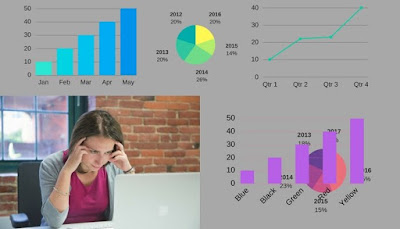It’s that time of the year again. Your end-of-year accounts have just landed on your desk.
You flip through them, and note that profit is up this year, but that so are overheads.
Why have overheads gone up? Which overheads, specifically, are costing you more?
You resolve to look into what happened over the last few months (although realistically, it might take several weeks to put together a detailed picture of what exactly happened).
In the meanwhile, you are just relieved that the end-of-year accounts were completed on time, satisfying your legal obligations – and go back to work.
That, I hazard, is a best-case-scenario for most business owners, because most people don’t even read their end-of-year accounts.
The reason is very simple:
End-of-year accounts are important, but not actually useful when it comes to managing your business. They provide an overview of what happened last year, but often raise more questions than they answer, telling you what happened – but not why (“Hold on, why was March such an exception?”).
They don’t help you run your business any better.
For that, you need management accounts.
These are prepared monthly, not annually, and you don’t file them at Companies House – they are strictly for internal use, and to help you, the business owner.
Most importantly, their aim is not to provide a general overview of how you’re doing (which I consider a form of score-keeping), but to provide you with the exact information you need to tell how your business is performing, and make informed decisions about what to do next.
So what do they include? I’ll give you an in-depth picture in the next blog. But the key principle is this. Management accounts should look different for every company, because while you might need to keep a close eye on your overheads, the company next door might have particular issues with cashflow…. Or old debt… Or might be struggling to tell which of its products are profitable.
Your report should be tailored to you, giving you the financial information you need not just to understand the past, but to navigate the future.
For that you need an accountant who is interested in more than bottom-line numbers. He or she will need a clear view of how your business works, what your goals are and what issues you are facing.
When we start working with a new client, for example, we spend a lot of time getting to understand their business. Many of the owners we work with have never actually seen a really good set of management accounts, so we work with them to figure out what information will be useful to them.
This is an iterative process. Once they get their initial figures, they suddenly realise that they need to get more in-depth information in one area, and that there are other pieces of information they could use, too. Very quickly, their management accounts become indispensable!
If you’re relying on your annual accounts to give you the financial information you need, you’re running your business with one hand tied behind your back.
If you would prefer to get regular, clear financial information that will help you run your business better, hit ‘reply’ and let’s chat. We find that company owners who make decisions based on clear facts not only see their businesses grow much more strategically, but feel more in control, too.





